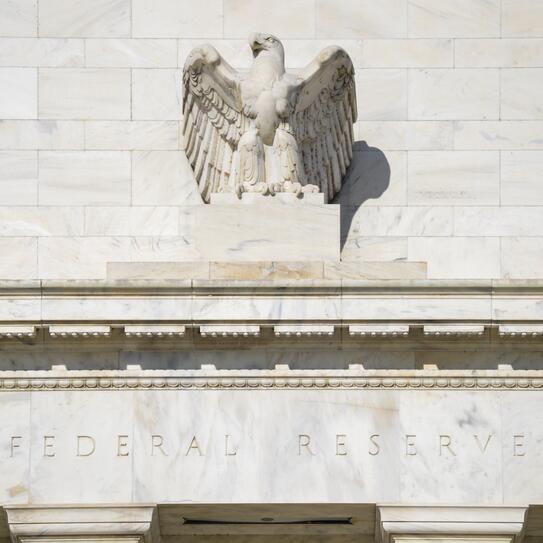
Interest Rates and Inflation: What’s Next for the Federal Reserve?
Professor Pierre Yared describes why the U.S. economy is unlikely to see an economic downturn comparable with the 1970s.

Professor Pierre Yared describes why the U.S. economy is unlikely to see an economic downturn comparable with the 1970s.
Tano Santos, the Robert Heilbrunn Professor of Asset Management and Finance and Director of Columbia Business School’s Heilbrunn Center for Graham and Dodd Investing, discusses the school’s approach to value investing and finance.
This paper studies systemic risk in the interbank market. We first establish that in the German interbank lending market, a few large banks intermediate funding flows between many smaller periphery banks. We then develop a network model in which banks trade off the costs and benefits of link formation to explain these patterns. The model is structurally estimated using banks' preferences as revealed by the observed network structure before the 2008 financial crisis.
We demonstrate a novel link between relationship-specific investments and risk in a setting where division managers operate under moral hazard and collaborate on joint projects. Specific investments increase efficiency at the margin. This expands the scale of operations and thereby adds to the compensation risk borne by the managers. Accounting for this investment/risk link overturns key findings from prior incomplete contracting studies.
Bank bond portfolios remained deeply underwater in the fourth quarter of 2022, reducing banks' access to liquidity in the first quarter when deposits became far more precious.

Todd Baker is a financial services executive whose career has led him from corporate law to C-suite strategic business leadership roles at several of the largest domestic and international banks and roles as an academic, consultant, writer, speaker and commentator on banking, financial technology, consumer financial access and regulation issues.

Brett House is Professor of Professional Practice in the Economics Division at Columbia Business School. His research and writing are focused on macroeconomics and international finance, with interests in fiscal issues, monetary policy, international trade, financial crises, and debt markets. His work has been published in peer-reviewed journals and international media.
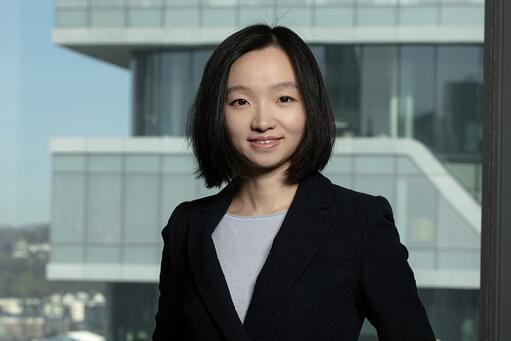
Yiming Ma is an Associate Professor in the Finance Division at Columbia Business School. She received her Ph.D. in Finance from the Stanford Graduate School of Business in 2018 and a B.A. in Economics & Mathematical and Global Affairs from Yale University in 2013.


Professor Tetlock's research interests include behavioral finance, asset pricing, and prediction markets. One area of his research examines how firms' stock market prices respond to the content of news stories. His 2007 Journal of Finance study on the impact of negative words, such as "flaw" and "ruin," won the Smith-Breeden Prize for the best article in asset pricing. His research has been featured in popular press outlets such as Business Week, The Economist, The New York Times, and The Wall Street Journal.


Michael Giliberto retired in 2010 as a Managing Director at JPMorgan Asset Management, the global investment management business of JPMorgan Chase. Mr. Giliberto oversaw U.S. real estate portfolio management and global strategy and research within the Global Real Assets Group.
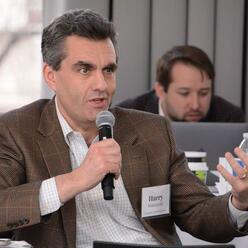
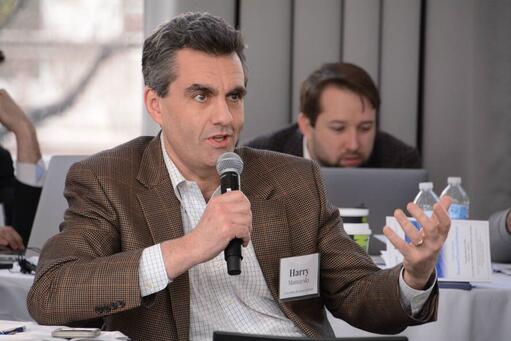
Harry Mamaysky is a Professor of Professional Practice at Columbia Business School, where he serves as the Director of the Program for Financial Studies. He is also on the Steering Committee of the Columbia-IBM Center for Blockchain and Technology. Harry teaches capital markets and asset pricing to MBA, Masters and PhD students, as well as Executive Education courses on the use of text data in finance, and on corporate bonds. He has consulted for a quantitative investment firm and for a nationally recognized statistical rating organization.
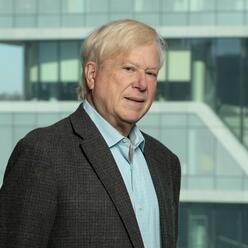
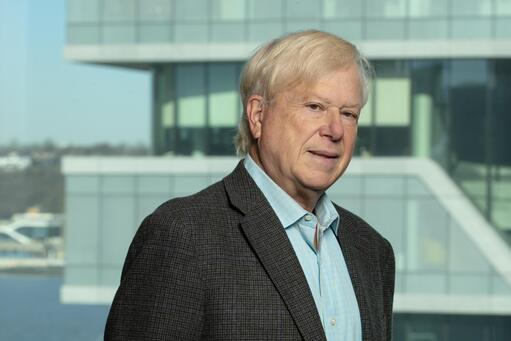
Mark A. Zurack teaches Capital Markets and Investments, Equity Derivatives and Equity Markets and Products at Columbia Business School. Mark is currently on the Board of Directors of the Binghamton University Foundation and also serves on the Boards of the Alzheimer's Association, Teach For America, Upper West Success Academy, ETC, Southampton Bath and Tennis and the Columbia Business School Social Enterprise Program. Prior to coming to Columbia, Professor Zurack worked at Goldman Sachs for 18 years. He joined GS in 1983 and started the equity derivatives research group.
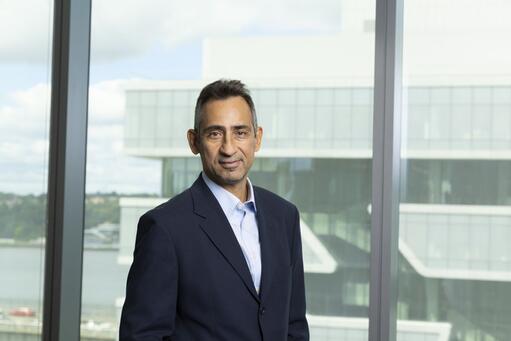
Achilles Venetoulias has 30 years’ experience in taking and managing risk, and in creating and running businesses. He has founded and run two hedge funds, taken proprietary risk for large institutions, supervised the investment process for a European fund of hedge funds, and served on the Board of a fund of hedge funds for an international wealth management firm. He has also founded a fintech company that
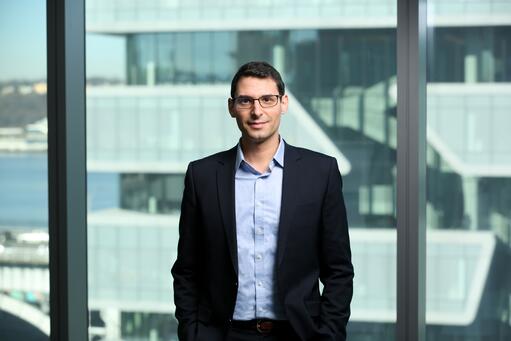
Jesse Schreger is an associate professor of macroeconomics in the Economics Division at Columbia Business School. His research is primarily on international finance and macroeconomics, focusing on sovereign debt and exchange rates. His work has been published in the American Economic Review, the Journal of Finance, and the Journal of International Economics.

Karl Mergenthaler, CFA is an Executive Director in the J.P. Morgan Investment Analytics & Consulting Group. His principal responsibility is to provide analytical and consulting services to pension funds and other institutional investors. Karl has more than 14 years of experience in the financial services industry. Prior to joining J.P. Morgan in 2007, Karl was an equity analyst and portfolio manager at Avatar Associates, where he was actively involved in the management of portfolios of Exchange Traded Funds (ETFs).

Matthew Dell Orfano is a Senior member at Discovery Capital, focusing globally on multiple sectors, thematic trade construction, and special situations, in addition to managing their data efforts. He is responsible for individual positions and the internal thematically driven portfolio, which assimilates bottoms-up analysis and macro thematic from over 55 countries into actionable insights.

David has over 15 years of experience investing in distressed, special situations and all-weather credit strategies, including as a Partner and Portfolio Manager of Standard General, LP. and Sunago Capital Partners LP. He also serves as Executive Chairman of Turning Point Brands, Inc. (NYSE: TPB), a Director of National Cinemedia, Inc.
Using publicly available data from 299 pre-registered replications from the social sciences, we find that the language used to describe a study can predict its replicability above and beyond a large set of controls related to the paper characteristics, study design and results, author information, and replication effort. To understand why, we analyze the textual differences between replicable and nonreplicable studies.
Using publicly available data from 299 pre-registered replications from the social sciences, we find that the language used to describe a study can predict its replicability above and beyond a large set of controls related to the paper characteristics, study design and results, author information, and replication effort. To understand why, we analyze the textual differences between replicable and nonreplicable studies.
Constituency mobilization is a widely prevalent corporate political strategy, yet we lack systematic evidence on the scope of its effectiveness. One emerging form of constituency mobilization is user mobilization, wherein a company focuses on rallying political support among its users. This approach differs from traditional lobbying, which relies on tightly controlled insider strategies to exert influence over lawmakers. In our study of user mobilization by platform-based companies in the U.S.
We develop a financial-economic model for carbon pricing with an explicit representation of decision making under risk and uncertainty that is consistent with the Intergovernmental Panel on Climate Change’s sixth assessment report. We show that risk associated with high damages in the long term leads to stringent mitigation of carbon dioxide emissions in the near term, and find that this approach provides economic support for stringent warming targets across a variety of specifications.
We consider a New Keynesian model with strategic monetary and fiscal interactions. The fiscal authority maximizes social welfare. Monetary policy is delegated to a central bank with an anti-inflation bias that suffers from a lack of commitment. The impact of central bank hawkishness on debt issuance is non-monotonic because increased
We consider a New Keynesian model with strategic monetary and fiscal interactions. The fiscal authority maximizes social welfare. Monetary policy is delegated to a central bank with an anti-inflation bias that suffers from a lack of commitment. The impact of central bank hawkishness on debt issuance is non-monotonic because increased
The United States recently passed major federal laws supporting the energy transition, and analyses suggest that their successful implementation could reduce US emissions more than 40% below 2005 levels by 2030. However, achieving maximal emissions reductions would require frictionless supply and demand responses to the laws’ incentives and implementation that avoids polarization and efforts to repeal or undercut them. In this Perspective, we discuss some of these supply, demand and polarization challenges.
‘Moral hazard’ links geoengineering to mitigation via the fear that either solar geoengineering (solar radiation management, SRM) or carbon dioxide removal (CDR) might crowd out the desire to cut emissions. Fear of this crowding-out effect ranks among the most frequently cited risks of (solar) geoengineering. We here test moral hazard versus its inverse in a large-scale, revealed-preference experiment (n~340,000) on Facebook and find little to no support for either outcome. For the most part, talking about SRM or CDR does not motivate our study population to support a large U.S.
In this paper, we develop a computational measure of the firm-level rhetorical nationalism. We first review the literature and develop a four-dimensional theoretical framework of nationalism relevant to firms: national pride, anti-foreign, dominant agenda, and corporate role. We then use machine-learning-based text analysis of over 41,000 annual reports of Chinese public firms from 2000 to 2020 and identify a dictionary of words for each dimension.